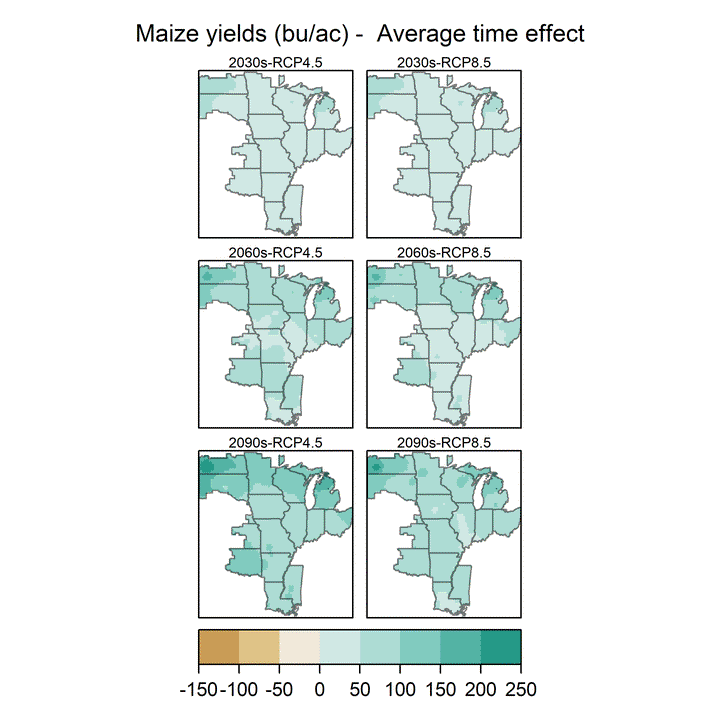 Figure from paper
Figure from paper
Abstract
This paper projects the race between technologically driven increases in crop yields and changing climatic conditions in the central USA, one of the world’s most productive agricultural regions. Using the highest, average, and lowest decadal rates of technologically driven increases in crop yields over the 1980 to 2017 period, we develop spatially explicit yield scenarios to the end of the twenty-first century under RCP4.5 and RCP8.5. We find that with static technological innovation, severe climate change will decrease yields by an average of 22.4 percent (26.1 bu. ac???1) for maize, 27.9 percent (8.83 bu. ac???1) for soybeans, and 20 percent (7.14 bu. ac???1) for winter wheat in the central USA; however, with even the lowest rates of technological yield growth, yields increase by an average of 25.0 percent (40.5 bu. ac???1) for maize and 30.2 percent (14.2 bu. ac???1) for soybeans. We conclude that technology has the potential to overcome the negative impacts of climate change on the yields of maize, soybeans, and winter wheat in the central USA, but if these increases are to be environmentally sustainable, technological developments must be informationintensive rather than input-intensive.